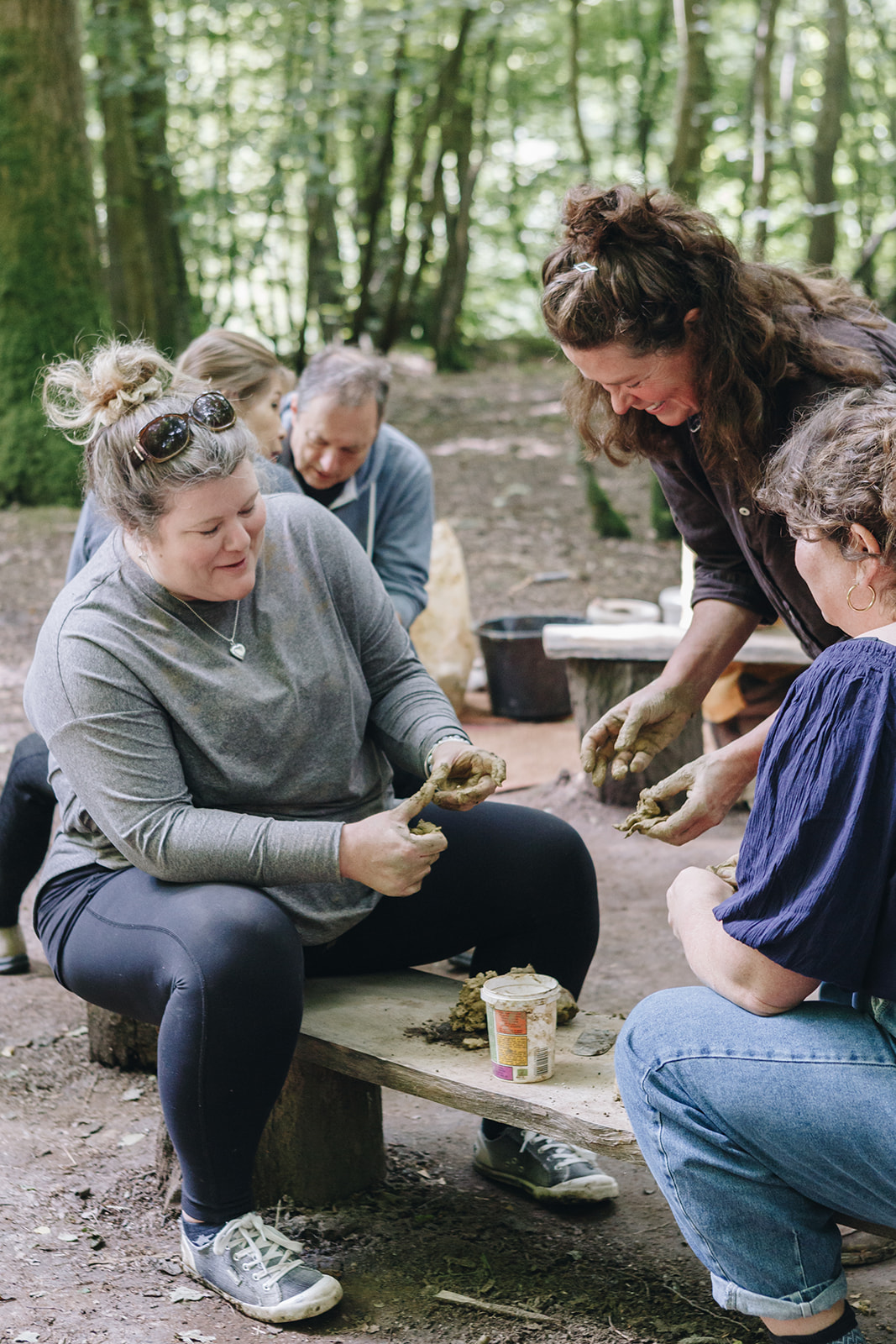
In this book, Ruby brings us into her world of making baskets with wild plants foraged from the landscape. More than just a practical guide, she explores weavings made by our Palaeolithic human ancestors and our animal kin, and describes a connected, reciprocal relationship to harvesting plants and supporting abundance in the living world.
Wild Basketry will inspire you to make baskets and cordage, enhance your appreciation of this universal human technology, and enrich your understanding of how it connects us with the whole earth community.
About the Book
Making with our hands is a fundamental human activity; connection with the natural world and the feeling of belonging to place are basic human needs. As a counterbalance to our digitalised lives is the wish to connect with the simple joy and satisfaction of creating beautiful and useful objects, tapping into ancestral skills and wisdom and taking care of our world by considering our ecological impact.
Wild Basketry brings all this together in a rich combination of reflection and practical guide.
With contextual information about the possible origins of basketry and its evolution, guidelines for identifying basketry plants (from temperate regions of the northern hemisphere) and understanding the ecosystems in which they grow, you’ll also find the protocols and principles for harvesting and processing plant fibres.
Beautiful photographs take you through a seasonal year of basketry and cordage projects with plants commonly found in the landscape. Suitable for the beginner as well as those wishing to expand their basketmaking skills and knowledge.
Step-by-step illustrated instructions cover a range of techniques, with suggestions for further exploration, giving you a thorough grounding in the fundamentals of the craft.
- Make 4 seasonal baskets: stake and strand bramble/blackberry basket, coiled lidded grass basket, twined reed mace basket and stitched willow bark container.
- Make 4 types of cordage from phormium, daffodil, bramble and willow and make a looped cordage bag.
Featured international artists, who work sculpturally and innovatively with plants and the landscape, bring an added dimension to this beautiful and inspiring book.
Bloomsbury Publishing 2025
Published in the UK, USA and EU
Available through all good booksellers worldwide
176 pages, 200 illustrations
Hardback, 280 x 216 mm
Praise for ‘Wild Basketry’
‘An excellent guide by a knowledgeable teacher, a book that is both practical and inspirational.’ Tristan Gooley author of ‘The Natural Navigator’ Sunday Times bestseller
‘This is an invitation to connect with that wild place in your heart and home in a beautifully rendered way that you cannot resist.’ Suzanne Simard author of ‘Finding the Mother Tree’
‘Revel in the quiet joy of creating something necessary and beautiful and made-by-hand.’ Hilary Leighton Professor, School of Environment an Sustainability, Royal Roads University, Canada
‘An inspired spellcasting, a romancing of the more-than-human world, a generous opening of a doorway into a wilder, deep-time community of intertwined relatives.’ Bill Plotkin, author of ‘Soulcraft’ and ‘Wild Mind’
‘What Ruby Taylor does is a vital part of the tapestry of land-based culture being restored.’
Miles Irving author of ‘The Forager Handbook’
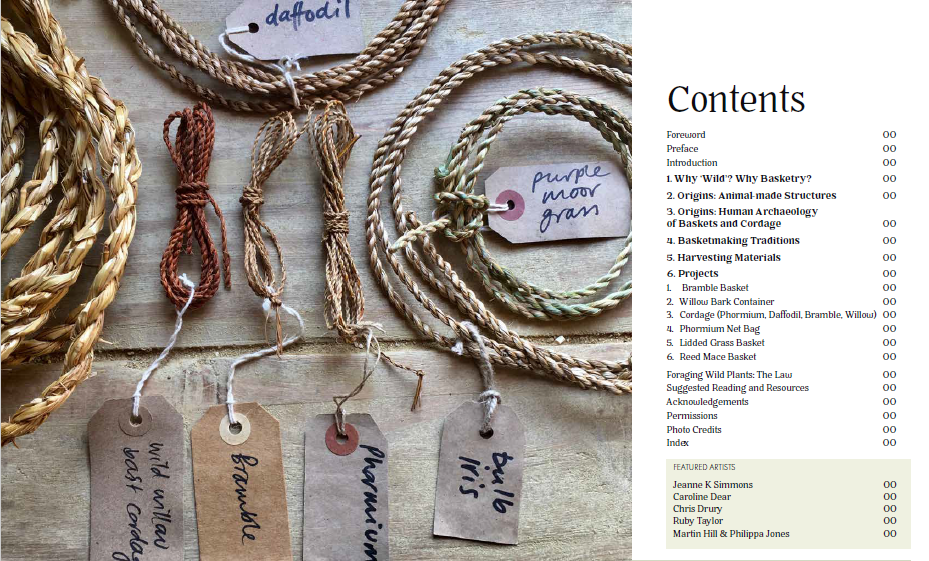

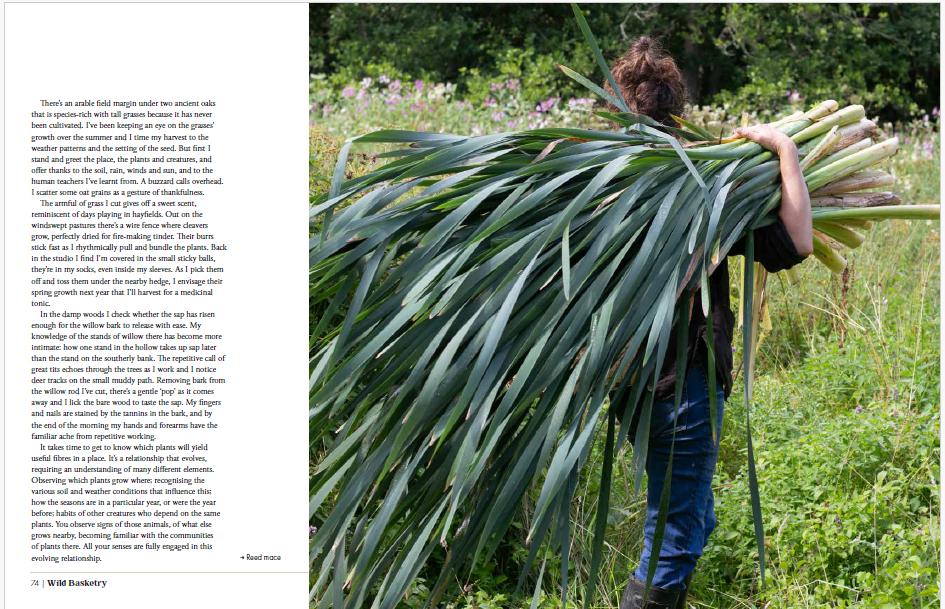
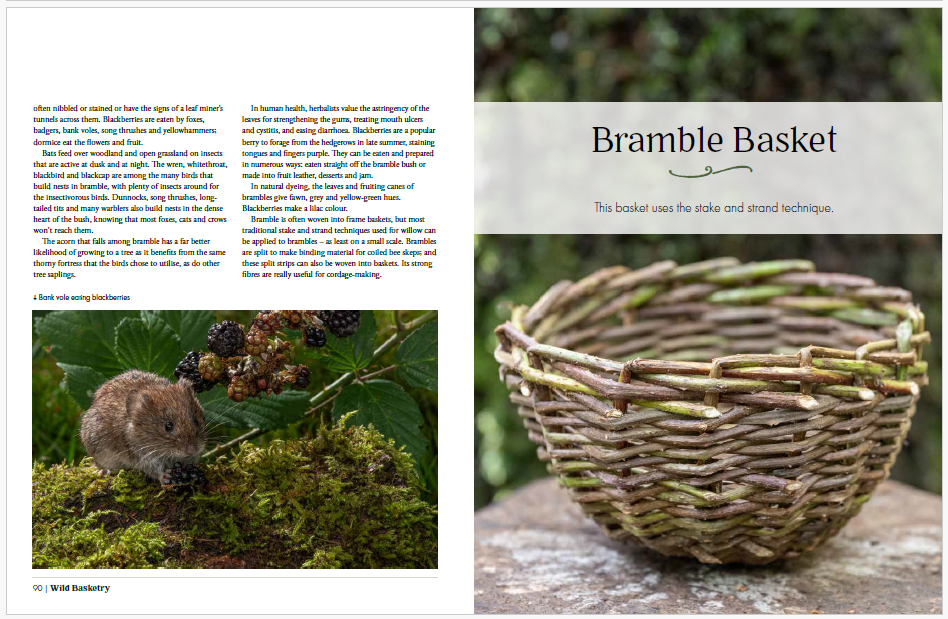
Watch the film about Ruby’s approach
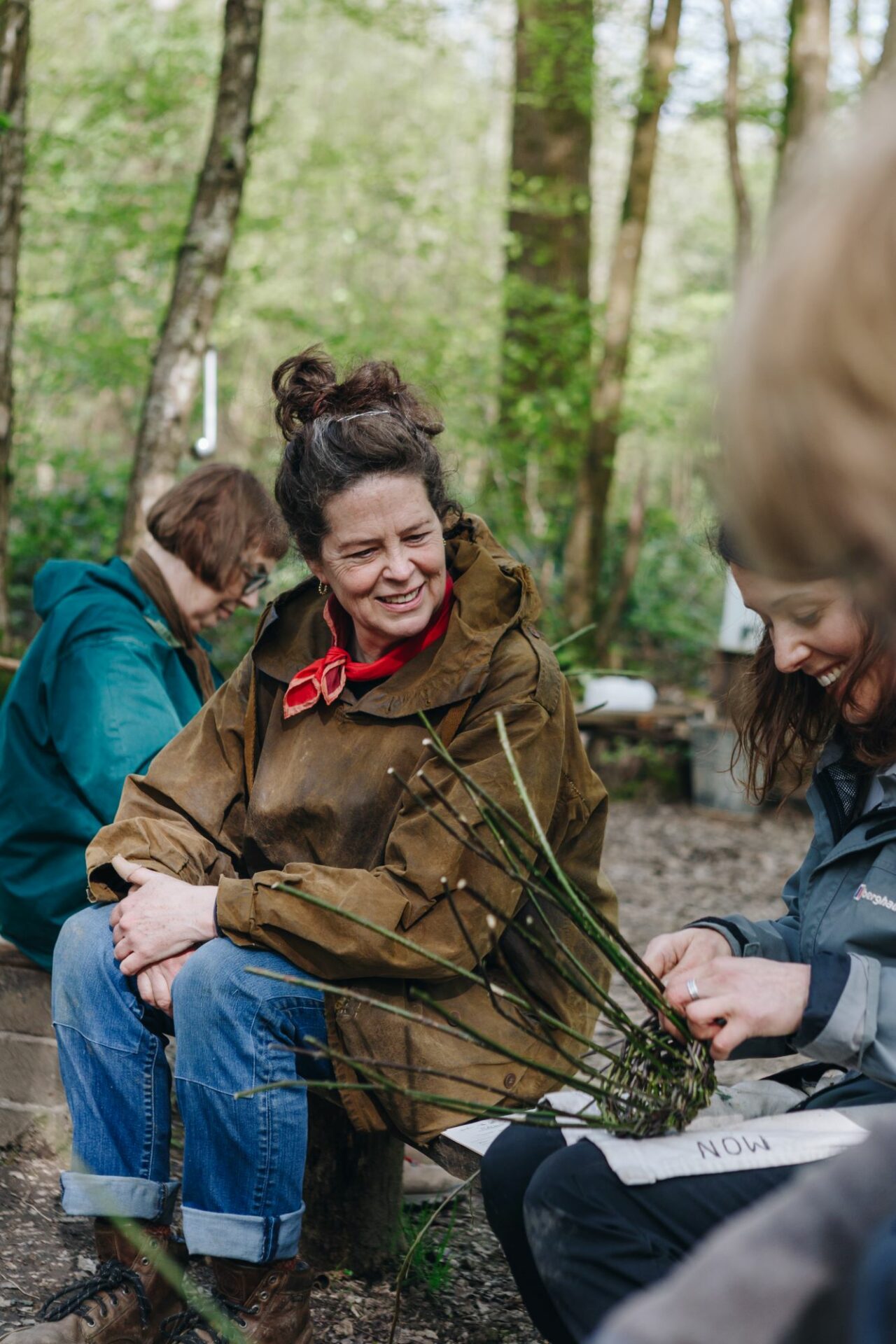
In-person Learning with Ruby
Ruby runs sell-out courses in Wild Basketry and Wild Pottery, which take place in peaceful ancient woodland in Sussex, UK around a campfire, beneath mighty hornbeam and oak trees.
If it is a human thing to do to put something you want, because it is useful, edible or beautiful into a bag, or a basket, or a bit of rolled bark or leaf, or a net woven of your own hair, or what have you, and then take it home with you… if to do that is human, if that’s what it takes, then I am human being after all. Fully, freely, gladly for the first time.
Ursula Le Guin, The Carrier Bag Theory of Fiction
